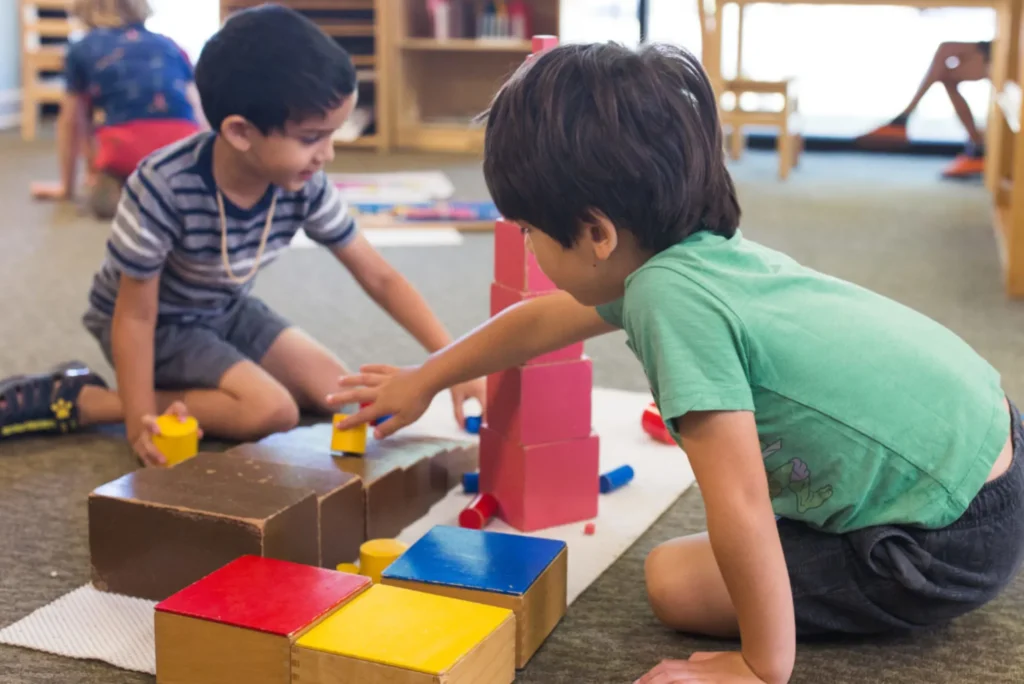Finding affordable and high-quality childcare can be a challenge for many families. Church day care programs offer a unique combination of affordability, nurturing care, and faith-based education. By understanding what church day care centers provide, parents can make informed decisions about their child’s early development.
What Is Church Day Care?
Church day care refers to childcare programs run by local churches or religious organizations. These programs are designed to provide a safe and nurturing environment for children while incorporating religious teachings and values. Families often choose church day care due to its community-oriented approach, affordability, and spiritual enrichment.
Why Choose a Church Day Care Near Me Cheap?
Church day care centers stand out for several reasons:
- Affordable Pricing: Many churches operate non-profit childcare programs, allowing them to offer lower fees compared to commercial daycare centers.
- Faith-Based Curriculum: These programs integrate spiritual teachings, helping children learn moral values and biblical principles.
- Community Focus: Parents and children can build relationships with other families, fostering a sense of belonging.
- High Standards of Care: Church day cares often prioritize safety, cleanliness, and emotional well-being.
Benefits of Church Day Care for Families

Church day care programs offer numerous advantages, making them a popular choice for families seeking affordable, high-quality, and nurturing childcare solutions. Here’s an in-depth look at how these programs benefit families:
1. Cost-Effective Option for Working Parents
One of the primary reasons families search for church day care is affordability. These programs are typically run by non-profit organizations or supported by church funds, which helps keep costs lower than commercial daycare centers.
- Sliding-Scale Fees: Many church day cares offer fee structures based on family income, ensuring accessibility for all.
- No Hidden Costs: Unlike some private centers, church day cares often include meals, snacks, and educational materials in their pricing.
- Value for Money: Parents receive quality childcare with a focus on emotional, spiritual, and educational development at an affordable rate.
2. Emphasis on Spiritual and Moral Development
Faith-based programs focus on nurturing the whole child, including their spiritual and moral growth.
- Bible Lessons and Prayers: Daily activities often incorporate stories from scripture, prayers, and songs that teach core values.
- Moral Teachings: Children learn important principles such as kindness, honesty, and respect for others.
- Faith-Based Environment: The nurturing atmosphere fosters a sense of purpose and community in young minds.
3. Compassionate and Dedicated Staff
Church day care staff often consider their work as part of their ministry, bringing a level of care and dedication that stands out.
- Passion for Teaching: Caregivers are motivated by a desire to serve children and families, not just by financial gain.
- Close Relationships: Smaller group sizes in church day cares allow caregivers to form meaningful bonds with the children.
- Experienced Guidance: Staff are typically trained in early childhood education and integrate faith-based teachings seamlessly into their curriculum.
4. Community Support and Networking
Church day care programs provide a built-in support system for families:
- Parental Involvement: Many centers encourage parents to participate in activities, fostering a collaborative environment.
- Family Events: Regular events such as holiday celebrations, potlucks, and community service projects help parents connect with others.
- Supportive Network: Families benefit from emotional and practical support through the church community during challenging times.
5. Structured Learning in a Safe Environment
Church day cares balance structured activities with free play, offering a well-rounded educational experience:
- Early Education: Programs often include age-appropriate lessons in reading, math, and science alongside religious teachings.
- Creative Activities: Arts and crafts, music, and storytelling stimulate creativity and imagination.
- Outdoor Play: Secure outdoor spaces encourage physical activity and social interaction.
- Safety Measures: Churches prioritize child safety with secure facilities, strict staff-to-child ratios, and trained personnel.
6. Emotional and Social Growth
Church day care centers provide an environment where children can develop emotionally and socially:
- Building Friendships: Children learn to interact with peers in a positive and inclusive setting.
- Conflict Resolution: Caregivers teach children how to manage conflicts and express emotions healthily.
- Confidence Building: Participating in group activities helps children develop self-esteem and independence.
7. Flexible and Family-Oriented Services
Church day care centers often cater to the needs of busy families:
- Extended Hours: Many programs offer flexible schedules to accommodate working parents.
- Sibling Care: Families with multiple children can benefit from sibling discounts and one convenient drop-off location.
- Customized Programs: Some centers tailor activities to meet the unique needs of each child, ensuring they feel valued and supported.
8. Values-Driven Education
Church day care centers instill values that resonate with many families, creating a foundation for lifelong learning and personal growth:
- Respect and Responsibility: Children learn the importance of treating others with dignity and fulfilling their responsibilities.
- Faith Integration: Families who prioritize religious teachings appreciate the inclusion of faith in daily routines.
- Life Lessons: Lessons on compassion, forgiveness, and perseverance prepare children for real-world challenges.
9. A Sense of Belonging for the Whole Family
Church day care centers are more than just childcare providers—they are extensions of a family’s faith community:
- Welcoming Atmosphere: Families of diverse backgrounds feel included and valued.
- Community Resources: Many programs connect families with additional church resources, such as counseling, support groups, or outreach programs.
- Lasting Relationships: Lifelong friendships often form among parents, children, and caregivers.
What to Expect from Church Day Care Programs?
| Feature | Description |
|---|---|
| Age Groups Served | Typically serves children from infants to preschool age. |
| Hours of Operation | Generally aligns with traditional working hours; some centers may offer extended hours. |
| Activities Provided | Includes playtime, educational activities, religious lessons, and group interactions. |
| Meals and Snacks | Many church day cares provide healthy, balanced meals and snacks. |
| Safety Measures | Secure premises, background checks for staff, and first-aid training are standard. |
How to Find Church Day Care Near Me Cheap
Searching for a reliable and affordable church day care requires research and careful consideration. Here are steps to find the best option:
- Ask for Recommendations: Speak with friends, family, or church members who may have experience with local programs.
- Online Search: Use search engines and directories to locate options near your area.
- Visit Centers: Schedule visits to meet staff, tour facilities, and observe daily operations.
- Compare Costs: Review fee structures to ensure the program fits within your budget.
- Check Reviews: Read testimonials and reviews from other parents for insight into their experiences.
People Also Ask About Church Day Care
1. Are church day care programs safe for children?
Yes, most church day care centers prioritize safety, adhering to state regulations, and ensuring secure premises and trained staff.
2. How much does church day care cost on average?
Costs vary, but church day care centers are often more affordable than private childcare, with fees ranging from $200 to $600 per month depending on location and services.
3. What activities are included in a church day care curriculum?
Programs typically feature a mix of educational activities, arts and crafts, outdoor play, prayer, and Bible stories.
4. Can non-religious families enroll in church day care?
Yes, many church day cares welcome families of all beliefs, though religious teachings are often part of the curriculum.
Reviews from Parents on Church Day Care Services

- “Choosing a church day care has been a blessing for our family. The staff is nurturing, and my child is thriving both academically and spiritually.”
- “I was looking for ‘church day care near me cheap,’ and I found a program that offers amazing care at an affordable price.”
- “The sense of community at our church day care is unmatched. It’s a great feeling to know my child is in a safe and loving environment.”
FAQs About Church Day Care
1. How can I ensure the quality of a church day care program?
Look for accreditation, staff credentials, and positive reviews from other parents.
2. What is the average child-to-teacher ratio in church day care centers?
Ratios vary, but many centers aim to maintain small group sizes for personalized attention.
3. Do church day care centers accommodate children with special needs?
Many programs are inclusive and may offer tailored support; inquire about specific accommodations during your visit.
4. Are meals included in the tuition fee for church day care programs?
Some programs include meals and snacks, while others may require parents to provide food.
Finding an affordable and reliable church day care can make a significant difference in your child’s early development and your family’s peace of mind. These programs combine quality childcare, faith-based education, and community support, offering a nurturing environment for children to grow and thrive.



